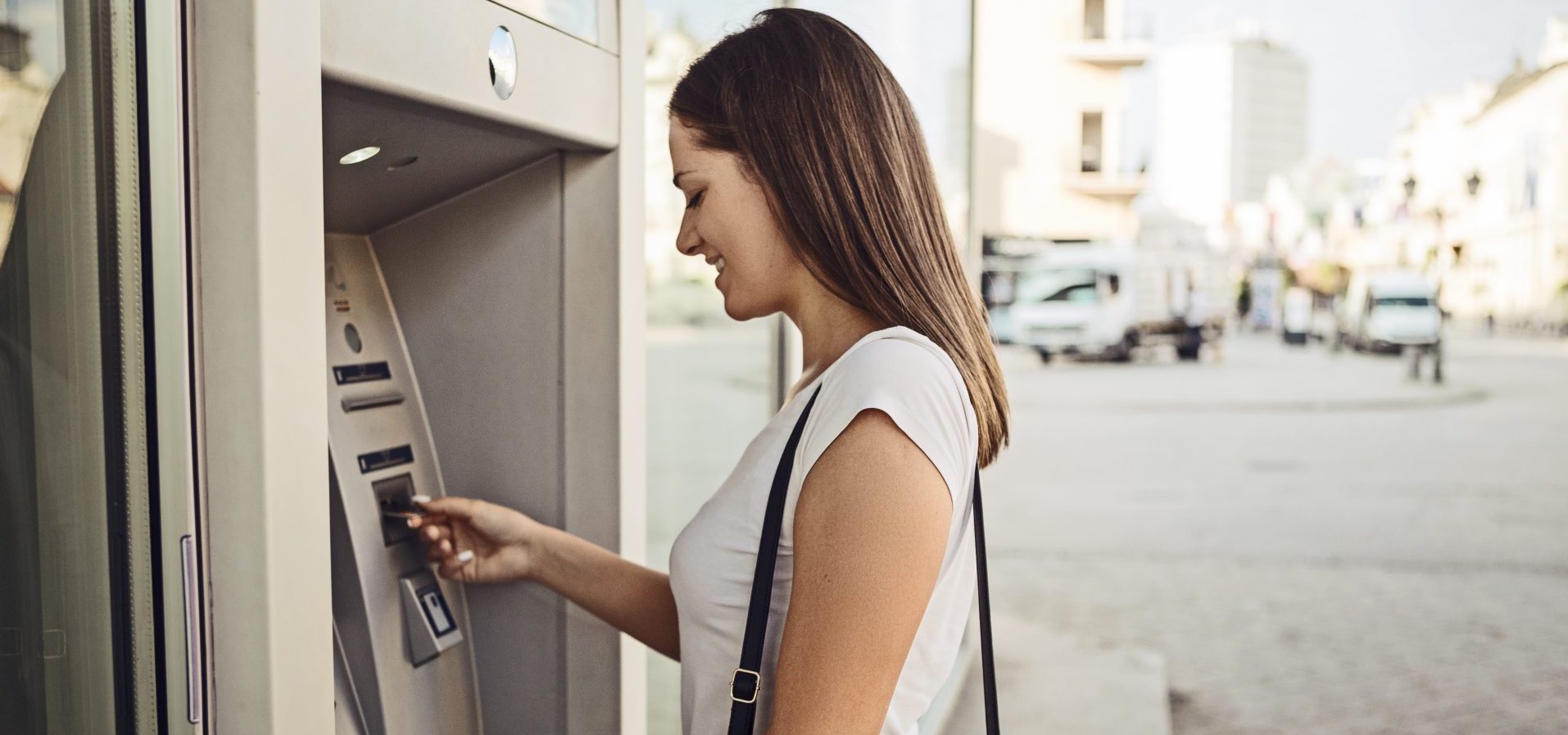Cash, Credit Cards and ATMs Abroad

Using a foreign currency for the first time may be confusing, but fortunately, there are many ways that you can access money abroad. It is important to always have a backup plan of how to access your money, and before departing, make sure to familiarize yourself with the local currency and do some research into the availability of resources such as ATMs and credit card readers. Read below for more information on some of the most common ways to access money and keep it safe.
Using Cash and ATMs
While technology to accept credit and debit cards is becoming increasingly common around the world, especially in major cities, it is always a good idea to have a small amount of cash in the local currency with you in case of emergencies or encountering a business that does not accept credit cards. It may be possible for you to convert a small amount of cash to the local currency at your bank before you depart – consult a local branch for more information.
The best way to access cash while abroad is to use an ATM, which are becoming increasingly more available across the world. Many airports have ATMs that you can use immediately upon arrival but be sure to consult your bank or credit card company about fees or limits that might apply.
Generally, withdrawing money from an ATM will have a small fee that may be either a set amount or a percentage of your withdrawal. Some U.S. banks have sister banks abroad that do not charge fees, so be sure to look into this option. Also note that some debit cards may not work abroad, namely those that do not have chip technology or have a pin number starting with zero (0). If your debit card falls into one of these categories, talk to your bank about getting a new one before you depart.
Be sure to notify your bank that you plan to study abroad to ensure that they do not block the use of your debit card. Some cards will automatically be denied if they have not been used for more than 6 months; be sure to use your card before departing to avoid this hassle.
Credit Cards
Though credit cards may not be as widely accepted in your host country as they are in the U.S, they are increasingly accepted worldwide. Many credit cards provide additional safety features that can protect your money, and some do not charge a foreign transaction fee, which can make accessing money more cost effective. Make sure to contact your credit card company to learn about any fees that may apply and to let them know that you will be abroad.
Note that Visa and Mastercard are more widely accepted worldwide than Discover or American Express. It is a good idea to bring at least one credit card and consider bringing a second as a backup option in case problems arise with your first one.
When paying with a credit card, you may get an option to pay either with USD or the local currency. When you choose to pay with USD, the business will be responsible for converting the payment; when choosing a local currency, the money will be converted by your credit card company. You will often get a better exchange rate when allowing your credit card company to do the converting, so it is a better idea to pay in the local currency.
Not Recommended:
- Opening a Foreign Bank Account: Opening a foreign bank account is often not necessary, especially if you will be abroad for less than 6 months. Many students consider it easier to simply access your U.S. bank account from abroad.
- Traveler’s Checks: While these are safer than using cash, they are increasingly becoming outdated and difficult to cash. Credit or debit cards are a more convenient way to protect your money.
- Personal Checks: Personal checks are both difficult and expensive to cash abroad. They are not a reliable way of transferring money abroad.
-
Cash Exchange Counters: Though they may seem convenient, cash exchange counters traditionally have a significantly
higher exchange rate than ATMs. Avoid them when possible.

